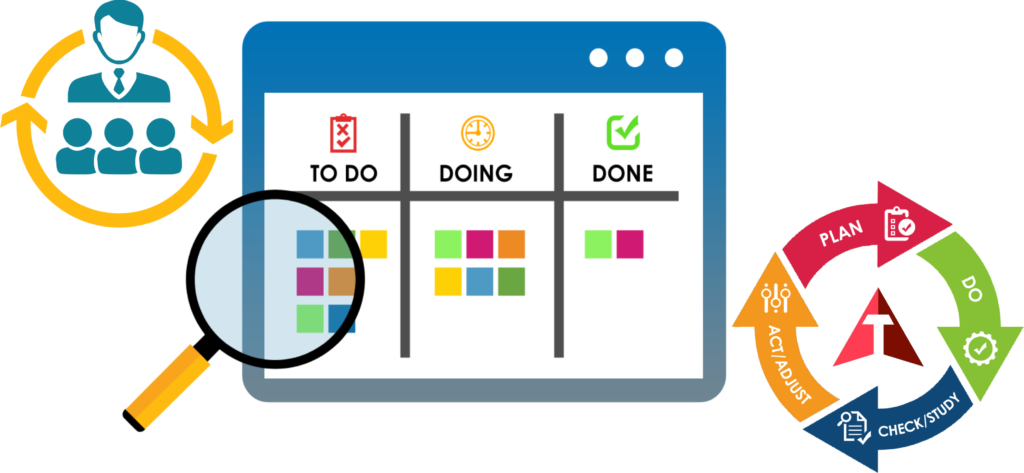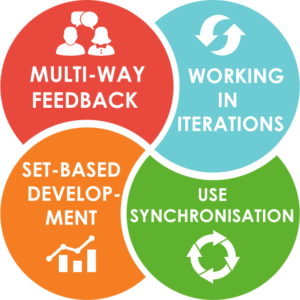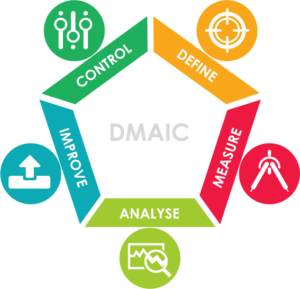Kanban Principles, Practices & Techniques
Mastering Agile Methodologies
- Instructor-led, Online
- Course Category: Agile Development, Change Management
GBP
45
Instructor-led, Online
Duration: 3 hours
Course Code: TXV-MAM-9018
Skill Level: Intermediate
Kanban Principles, Practices & Techniques
Overview
Go with the flow! Kanban let’s you see the flow of work in a visual manner using boards and cards. From small Scrum teams to large scale SAFe setups, Kanban has been an integral part of applying agile principles and practices. Join us to understand why the concept of flow is vital not just in developing products or improving processes, but also in enhancing our professional and personal lives. Learn the principles, practices and techniques in Kanban. Understand the roles and responsibilities, and know how to apply the popular Kanban boards, Kaizen PDCA, planning and controlling work-in-progress, enrol in TEXAVI’s Kanban Principles, Practices & Techniques course now!

Who can attend?
- Anybody with or without work experience
- IT professionals (eg., Developers, testers) considering a move to BA role
- Non-IT people who want to learn IT skills thinking of a career switch
- Graduates and university students who aspire to get into IT industry
- Students who have just passed their B. Tec, A-Levels or college studies
COURSE OUTLINE
- Overview & setting the context
- Kanban -What, why, when, where
- Key principles of Kanban
- Kanban roles & responsibilities
- Core practices in Kanban
- Flow, the spirit of Kanban
- Key artefacts and deliverables
- Techniques & tools used in Kanban
- Kanban & other agile methods
- Summary – Q & A

What will you learn?
By the end of this course, you will be able to:
- Define Kanban agile method and describe its roots
- Trace the origin of Kanban to manufacturing industry
- List the ways Kanban helps in agile development projects
- Team boards
- Jira boards and workflows
- Visual information radiators
- Explain the structure of teams before and after implementing Kanban
- Describe the contexts and use cases for Kanban
- List the key principles in Kanban
- Visualise the work
- Limit work in progress
- Focus on flow
- Make process policies explicit
- Implement feedback loops
- Continually improve

- Define the roles and their responsibilities in Kanban
- Discuss how Kanban helps in managing flow of work
- Elaborate on the core values of Kanban and how they help teams
- List the core practices in Kanban
- No fixed iterations
- Work moves through a flow
- Features given priority put in queue
- Limit on work-in-progress
- Use work queues to manage flow downstream

- Describe why and how ‘flow’ is the spirit of Kanban
- Explain the importance of boards and cards in managing flow of work
- Provide rationale on why boards are called visual information radiators
- List the various information dimensions in agile development projects
- Demonstrate the creation of a Kanban board:
- Add columns to depict the swimlanes
- Give appropriate titles to the row headers
- Show the activities and tasks in rows

- Explain the role and use of CFD (Cumulative Flow Diagrams)
- Describe how Kaizen (Continuous Improvement) fits into Kanban
- Explain how Kanban works with other agile methodologies eg., Scrum and SAFe
- List some of the popular tools and applications for implementing Kanban:
- Physical boards
- Electronic boards – eg., digital online tools
- Jira, Trello, ActiveCollab, LeanKit, Kanbanery and SwiftKanban
What do you need?
There are no pre-requisites for this course. There is no need for any prior experience, working knowledge or awareness of software development or projects experience. The course is suitable for experienced professionals working in the industry or academia, aspirants and early stage professionals, as well as students in universities and colleges. Professionals and aspirants from technology, business, operations or sales are all welcome to explore and understand the power of Jira and collaborative working.
WHAT'S INCLUDED?
|
 |
Why Texavi?
Learn real-world, practical skills from practising professionals, not just theoritical knowledge from trainers!
-
TEXAVI is a proven leader in delivering non-coding IT learning, worldwide
-
We are not just trainers, but practising IT professionals with 25+ years of work exp
-
Our courses get you job-ready with practical and real-time insights
-
Qualify for certificates upon completion and complete our assessments
-
Pave way for industry-recognised certifications
-
Access to treasure of Texavi’s high-quality, content-rich resources and materials
-
Get discount voucher to our popular courses on Udemy
-
24×7 access to Texavi’s interactive platform with personalised content
Sample Course Video
TEXAVI Tests
Test Your Knowledge

Take the Texavi Tests and challenge yourself, simply click the below links and start the interactive quiz on Kanban…
Trainer Profile

Your trainer for this course is Pardha Saradhi Mantravadi. Pardha is a seasoned and well-qualified trainer, coach, mentor, influencer and thought leader. He has rich and varied IT-industry experience of 25 years, working in different roles as an IT professional with blue-chip organisations viz., HSBC, Deutsche Bank, Dyson, Asda, Cambridge University Press, Roche, King’s College London , Royal Society of Chemistry etc. Pardha delivers his training sessions by blending the concepts and principles with practical insights from real-life projects and programs…click here to view the complete trainer profile.
Reviews
“The delivery was consistent, thoughtful and measured. Texavi’s masterclass worked well for me.”
– Louise Caldwell, OMT Group
“I enjoyed the bootcamp and found it very inspiring. I found your description of digital transformation very useful and I liked the examples that were given about successful digital businesses.”
– Dr. Carrie Mowatt, Royal Society of Chemistry
“What I like most about Pardha is the way he easily blends empathy for users within day-to-day software development tasks. This mix of vision and execution is rare and powerful.”
– Sarbajit Sen, Steelwedge Software
“Recently Texavi conducted a workshop on Agile methodologies. The trainer’s knowledge on Agile methodology has its roots grounded in experience.”
– Tazeen Sheikh, Mastek
” The trainer is very well-informed. I learnt a lot of background to digital transformation and artificial intelligence and how businesses can use them.”
– Robert Bowles, RSC
“I attended Texavi’s training on Agile Business Analysis and had a lot of takeaways from the session. Pardha’s effective presentation skills supported with context you can relate to, makes the entire experience exhilarating.”
– Abhijeet Majumdar, Zensar Technologies
“The workshop was quite interesting. I found the exercises we did particularly valuable, as it was useful to discuss with the others present, and to then feedback to the wider group.”
– Holly Sheahan, Cambridge Partners
“Excellent speaker, very knowledgeable. Lovely manner and gentle approach.”
– Linda Clifford, Marketing Success
“Texavi has delivered a fantastic product which was above expectations. The ISBE DataHub will support operational and strategic efforts, at the same time reducing the burden of work for staff at KCL.”
– Christine Manoharan, King’s College London
“The workshop was quite interesting, liked the practical and interactive parts. Texavi’s Digital Business Maturity Model is really helpful and necessary for success.”
– Julio C Garcia, Creanto
“The trainer, Pardha is professional yet very friendly, made everyone feel welcome.”
– Chantal Gilbert, BusyBee Consulting
Related Courses
Texavi Toolkit
Team TEXAVI created relevant videos, podcasts, blog posts, white papers, posters and articles for your use. Check the below content out to understand more about Kanban:
- Kanban, an overview video (Warning! reduce your volume, some may find the introduction music too loud)
- Fostering innovation through interaction and collaboration – Texavi blog post
- Best practices in agile development methodologies (please turn down the volume of the video)
- Testing in agile methodologies – Texavi Poster
- Don’t fight change, manage it with agility
